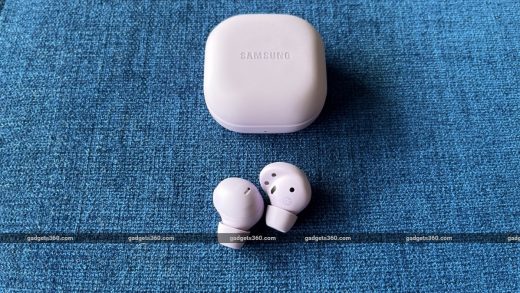
As the internet continues to be a central part of how we connect, learn and play, understanding how to stay safe online remains top of mind at Xbox. Ahead of the 20th annual Safer Internet Day on February 7, Xbox is reaffirming our commitment to an online world where everyone is empowered to have fun within the boundaries they set.
As Xbox continues its safety journey, we are excited to share a few ways we are recognizing Safer Internet Day. I recently sat down with Xbox Podcast’s Jeff Rubenstein to talk about our evolving approach to safety, and how players, parents and caregivers of all ages can work together to leverage our resources in a way that fits their personal safety preferences. In addition to being a parent and my role here at Xbox, I’m also a player and a customer. Wearing these different hats has enabled me to see and experience first-hand the ways that gaming can allow for open conversations between parents, children and caregivers about staying safe while online, and also about good habits around budgeting, screen time, and more.
At Xbox, our Trust and Safety team is responsible for helping players and families have peace of mind while gaming on Xbox. We take a multi-faceted approach to safety, privacy and community health that focuses on empowering parents, children and caregivers with the tools and education to have safer gaming experiences for the whole family. We design these resources with choice in mind, with the understanding that safety is a priority not only for Xbox, but many families as well. We’ve created family-friendly resources, such as our Xbox Family Hub, as a one-stop shop for information about Xbox safety and privacy, the Xbox Data Collection for Kids website to teach kids about Xbox privacy, and we have well-established Community Standards and guidelines so players understand what types of interactions are acceptable and not acceptable on our platform.
Play the New Privacy Prodigy Game from Minecraft Education
Families and educators around the world are constantly looking for ways to help young people stay safe in the digital world where they play, learn, and build meaningful relationships. At Xbox, we know that a fun way to engage is through creative learning environments.
Today we’re launching a new immersive game-based learning experience calledPrivacy Prodigy, which is a continuation of the CyberSafe series from Minecraft Education, which includes last year’s Home Sweet Hmm. Privacy Prodigy is designed to help players from age 7-18 learn how to keep their personal data safe when they’re out in the world, whether that’s learning how to keep data protected in public places or where to store data. Each challenge is constructed to help students and their parents learn how to make more informed decisions about who should have access to their personal data and why.
This single-player experience introduces young people to the concept of areas of trust. They’ll develop the ability to identify the different types of information they need to manage and what they can share. Players will also learn strategies for protecting their personal data and ways to mitigate any issues that arise from compromised information.
Privacy Prodigy is available in the Minecraft Education lesson library. If your students, friends, family (or you!) play the Bedrock version of Minecraft at home, access Privacy Prodigy for free in the Minecraft Marketplace.
How Xbox helps keep gaming conversations safe and fun
Another important – and fun – aspect about online communities is communicating with friends and players. When playing games online, it’s common for people to share all kinds of content, from a gif to an emoji, or a simple “GG” (good game) that signals a job well done at the end of a match. With players located around the world, certain emojis, messages, and slang terms can hold different meanings depending on cultural and regional nuances. Xbox is able to help determine what is simply “gaming lingo” and what is potentially harmful content through content moderation tools that allow for safer gaming experiences.
To help keep gaming conversations safe and fun, Xbox scans over 18 billion interactions per year with Community Sift, a moderation platform that has a team of language and culture specialists who understand more than 20 formal and informal languages, in addition to cultural and regional idioms.
Tips for parents and players for safer gaming on Xbox

1. Check in and play with your child on a regular basis
Maintain an open dialogue with kids about safe online gaming, and join in. Playing together is a great way to have an interactive conversation, while better understanding the types of games they’re playing, who they’re playing with and what online scenarios you should be discussing.
2. Create a family group and child accounts for your family
If you haven’t yet created a family group and child account for your family, it’s simple and quick. The account is age-specific and parents can get notifications related to activity. When added to a family group, parents and caregivers can easily personalize each child’s online experience based on age-appropriate limits, such as privacy, content filters and online purchases. Just follow the steps on this page to get started.
3. Customize your settings using the Xbox Family Settings app
Free to download for iOS and Android devices, you can set screen time, gain insight into gaming activity through reports, manage your child’s spending, review friend requests, and plenty more from the convenience of your phone. Learn about how the Xbox Family Settings App works here via a handy video, and download when you’re ready

4. Visit xbox.com/family for even more information for families
Head over to the Xbox Family Hub to learn more about what Xbox offers for families, from information about privacy and access to privacy tools, the Xbox Family Settings app, and our Community Standards.
And if you are looking for additional resources


